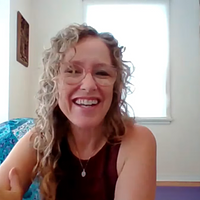How often have things not gone according to plan? You think you’ve planned everything and then the unexpected happens and all your plans have to be set aside or altered . . . or reconfigured. It brings to mind the story of the young Scottish poet Robert Burns overturning the home of a mouse while plowing his field. It certainly wasn’t what the mouse planned on when he built his home and it leads Burns to consider how humans respond to the unexpected with despair when they were hoping for joy. That story came to mind again recently but instead of despair, the unexpected provided an invitation to find something quite different. Let me explain.
Back in March, I completed my certification for a Guided Autobiography Instructors course. With my certificate, curriculum and resources in hand, I set out to find places where I could offer my services. I found one in a local retirement and long-term care facility where I’d been volunteering, offering a monthly storytelling session.
Thanks to a passionate Events Manager, we struck an arrangement whereby she would find six or seven willing participants and provide a suitable room to work. I would prepare and facilitate the 6-week program.
Come the day of our first session, I felt ready. With my “Guide for Facilitators” and handouts ready, I entered the facility.
Although I knew that I would be facilitating a group of seniors, I wasn’t prepared for how old they might be or what limitations they might have. Four out of the six were in their 90s, the oldest 98 years old. One is legally blind and uses a magnifying glass to read. She told me she was there to listen as she found writing too difficult. Another was near deaf. I had to put my face up next to his ear and shout so that he could hear me. All had physical limitations and some cognitive challenges. My training hadn’t prepared me for this. It was becoming obvious that I was going to have to reinvent the course agenda to meet the needs of this group.
What the group did have (that I don’t) was long-term memory. When I gave them a writing prompt to get them started, it triggered memories of their childhood homes. I was astounded at the level of detail they recalled. They remembered the names of the streets where they lived, the names of kindergarten teachers, of friends and neighbours. One woman from Northern Ontario remembered people living in sod houses, another from the prairies of Saskatchewan recalled her parents digging “dugouts” – holes in the ground to collect rain and groundwater for drinking and household use. I asked them to draw floor plans of their childhood homes and recall one room in particular that gave them positive memories. Most chose kitchens and described the meals their mothers and fathers made there. Most of the group chose to draw and add a few sentences but when it came time to share, they relied on their memories and spoken words.
While this was meant to be a memoir-writing course (with the emphasis on writing) I realized that telling stories orally was going to be our primary mode of expression here. Fortunately, as a storyteller in the oral tradition, I knew I could accommodate this kind of sharing. These folk might not be able to write multi-page stories but we’d share their stories one way or another. A colleague suggested I record their stories and have them transcribed and present them back to their owners.
I guess the lesson I’ve learned is that no matter how well-prepared you think you are, a situation will always arise in which you find yourself unprepared. Accept these situations as gifts – opportunities to learn and acquire new insights. Rather than complain or sink into despair because the situation wasn’t what I had prepared for, I saw the opportunity to call upon my other skills and experiences – my teaching and storytelling experiences, for example – and use them to adapt to the circumstances. Be prepared to be unprepared, for as the Scottish bard Robert Burns once remarked, “The best laid plans of mice and men often go awry” or, as the more contemporary Murphy’s Law would have it, “Anything that can go wrong, will go wrong.” When it does, be prepared to be unprepared . . . and then prepare to discover something new.




Comments